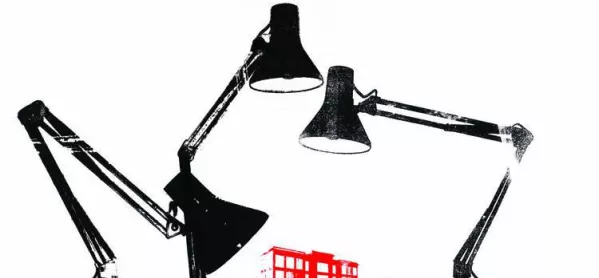I am a fan of Geoff Barton: I have read many of his articles and admired his wisdom. In part, I agree with his latest article. We do need to change the narrative. But, that is about much more than a simple re-write, Pollyanna style.
Genuine excitement and collective optimism must derive from a radical change in dynamic between teachers and the accountability system. For too long the rhetoric, especially from the era of the two Michaels (Gove and Wilshaw), has been derogatory, depicting professionals as part of a workforce in need of constant direction. The most invidious phrase of that era was “hold schools and teachers to account” casting teachers in the role of the guilty party. No one has ever quite spelled out what exactly the ongoing transgression is - a bit like crime fiction without the crime.
Chief inspector Amanda Spielman is making the right noises, especially about the importance of curriculum. But, if she is to carry this through to inspection then she may need to do a bit of re-casting.
One of the drivers of workload and causes of negative expectations is the fact that inspections do not seem to engage with the most important thing of all - what we teach. Teachers don’t expect to be seen by subject experts - therefore so much of the paperwork and practice is defensive, about justification, about providing the cold hard data, plans and documents to coincide with someone else’s narrative, which we only know in part.
Ofsted at its best
The most perceptive inspections I have faced have been from subject specialists who were also astute enthusiasts. In the days when inspectors were expected - not just permitted - to give feedback, they really made me think about lessons and the ideas within them and what really makes the best teaching. These experiences survived not only the session at the end of the day but also in the years beyond. It was a welcome professional discussion as well as a check on my department and school.
If experts were to inspect the subjects they’re knowledgeable and passionate about, the professional dialogue would raise standards far better than any exercises in collecting snippets from various classrooms as a way of evaluating teaching. The collage approach seems to me, as a literature teacher, as bad as substituting bitesize revision guides for teaching whole texts in the classroom.
Teaching has always been tough. In my second year of teaching, I remember the headteacher sympathising with classroom practitioners as “the packhorses of the profession”. To avoid being the boxers of the workforce, teachers need to protect their faculty to exercise independent thought and action. This is very difficult in the face of micromanagement. Targets are too often narrowing. Greater emphasis on professional values would provide more inspiring themes for our narrative.
Study exit interviews
Things need to change - but not by glossing over problems. Social media, blogs and platforms, such as Tes, provide new voices and a wider audience. Contributors raise issues such as inadequate buildings and budgets as well as workload. These gritty realistic accounts put into perspective the excessive expectations in politicians’ narratives.
Ultimately, it is not the teachers putting the case against current working practices that have impact - it is the number voting with their feet. Perhaps, a study of exit interviews might give a clearer picture of their motivation to move on or away.
Teaching does not always have to be a tale of darkest anguish. Like the best novels, teaching as a career or a vocation used to be - and can still be - full of heart-warming moments, realisations and intellectual satisfaction. It is a web of wonderful students, contacts and colleagues who take key roles in our stories. So, let’s change the plot, rhetoric and the cast to construct a narrative worthy of them.
Yvonne Williams is the head of English and a member of the post-16 and higher education committee of Nate. The association is running a Post-16 and Higher Education Day Conference: New Directions at Post-16 English at Aston University on Saturday 11 November 2017.
Want to keep up with the latest education news and opinion? Follow Tes on Twitter and Instagram, and like Tes on Facebook




